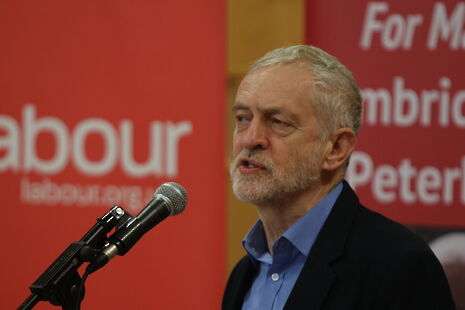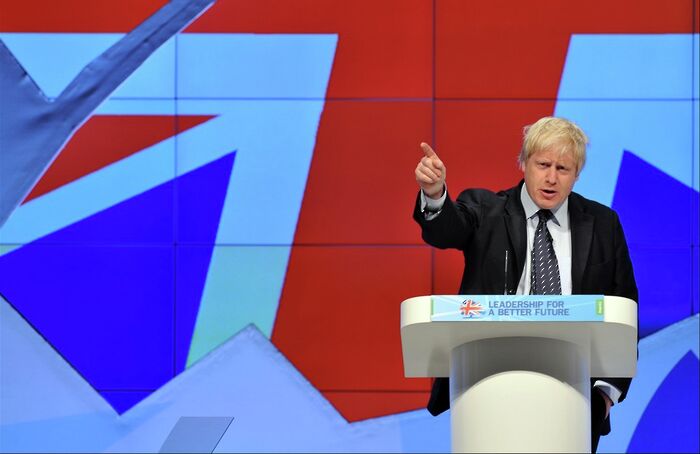Corbyn has done what no Blairite could do
Jeremy Corbyn has helped heal the deep wounds that have weakened the Labour Party for years

“Former Blair aide says party lost an ‘easily winnable’ fight”, reads a headline on the fourth page of this Sunday’s Observer. The former aide in question is Peter Hyman, Tony Blair’s ex-speechwriter, who has joined Chris Leslie in saying that the party missed an “open goal” in failing to beat Theresa May on June 8th. Scan a little further down the article, and you’ll be told “this was an election that, with the right people and programme, was easily winnable.”
Hyman and Leslie’s basic argument is that a centrist programme, delivered by a professional politician, could have capitalised on Theresa May’s weaknesses, drawn votes from across society, and seen Labour into power.
“If Blairism is so good at winning, how come it hasn’t won anything for a decade?”
Apart from those that Theresa May has been making for the last six weeks, it’s hard to conceive of a more blinkered or arrogant attack. It’s one premised on an astounding misreading of the British political climate, and ignores almost every single lesson this election has taught us.
Now, it would be easy to respond to these two and their claims in a variety of ways, not least by posing a simple question: If Blairism is so good at winning, how come it hasn’t won anything for a decade? But I’d rather focus here on the claim that “the right people and programme” could have won this election for Labour.
No, they could not. The structural problems that the party faced going into this election, from the new political divides (young vs. old, educated vs. uneducated, city vs. country) that have only been exacerbated by Brexit, to the routing of Labour support in Scotland and the legacy of the Iraq War, meant that this was an unwinnable battle for Labour. This makes Corbyn’s achievement absolutely remarkable. What’s more, those achievements could not have been brought about by any other person within Labour, or with any other platform.
“One of the main reasons Corbyn pulled off this accomplishment is because of his ‘unspun’ charm, honesty and likability.”
The four possible alternatives to Jeremy Corbyn as Labour leader over the last two years (being the only ones to oppose him in the two leadership elections) have been Yvette Cooper, Andy Burnham, Liz Kendall, and Owen Smith. The idea that any of these would have fared better in this campaign is laughable. One of the main reasons Corbyn pulled off this accomplishment—turning a projected 100 seat Tory majority and the predicted death of Labour into a hung parliament and a strong platform from which to win the next election—is because of his ‘unspun’ charm, honesty and likability.
Yvette Cooper is perhaps the most viable alternative leader to Corbyn, at least in the eyes of the Parliamentary Labour Party, and is not exactly known for her off-the-cuff wit or warmness. Just try and find the YouTube clip of her being asked to tell a joke in the Labour leadership hustings, if you can bare it. And in his stand against Corbyn in 2016, Owen Smith managed to be so bland, negative and uninspiring that he increased the (at that point, apparently failing) leader’s vote share by some margin.
Cooper, Smith, Kendall and Burnham are not the kind of politicians that inspire record high youth turnouts, or can unite that vote with those who’ve turned to UKIP in protest at an out of touch political class. They are the out of touch political class. Only someone like Corbyn, who knows his own mind and has stood up for what he believes his entire political career, who can connect with people so brilliantly on the doorstep, at rallies and on the TV, could have effectively taken advantage of the negativity and pre-scripted nature of Theresa May’s campaign.
As for policies, we must first note that this election was a rejection of austerity. Just how, then, could the public have been persuaded to vote for a Labour leader who abstained from opposing some of the most draconian benefits cuts of Cameron's government? All four of these potential leaders abstained failed to vote against 2015’s Welfare Reform and Work Bill which, among other things, heavily cut child tax credits and abolished binding child poverty targets. Corbyn, however, did vote against it, signalling to the British public that he desired an end to needless austerity, just as a vast swath of former Labour voters who have returned to the party did, too.
Jeremy Corbyn brilliantly led a campaign that united those most suffering under the weight of austerity, a generation whose prospects are far less bright than their parents, and those fearful of the further damage a hard Brexit could do to the economic and social conditions of our society. In doing so he put a halt to Theresa May’s disavowal of responsibility for the young, and pursuit of a damaging Brexit and widening inequality.
To think that any of these other potential leaders, who all suffer the same deficits in normality as May, could have done better from a centrist platform that would have included the continuation of Tory austerity is absurd. It is useless and ungrounded analysis coming from people who are stuck in 1997 and refuse to see that politics has changed and is changing still
 News / Cambridge bus strikes continue into new year16 January 2026
News / Cambridge bus strikes continue into new year16 January 2026 News / Uni members slam ‘totalitarian’ recommendation to stop vet course 15 January 2026
News / Uni members slam ‘totalitarian’ recommendation to stop vet course 15 January 2026 Science / Why smart students keep failing to quit smoking15 January 2026
Science / Why smart students keep failing to quit smoking15 January 2026 Interviews / The Cambridge Cupid: what’s the secret to a great date?14 January 2026
Interviews / The Cambridge Cupid: what’s the secret to a great date?14 January 2026 Comment / Will the town and gown divide ever truly be resolved?12 January 2026
Comment / Will the town and gown divide ever truly be resolved?12 January 2026









